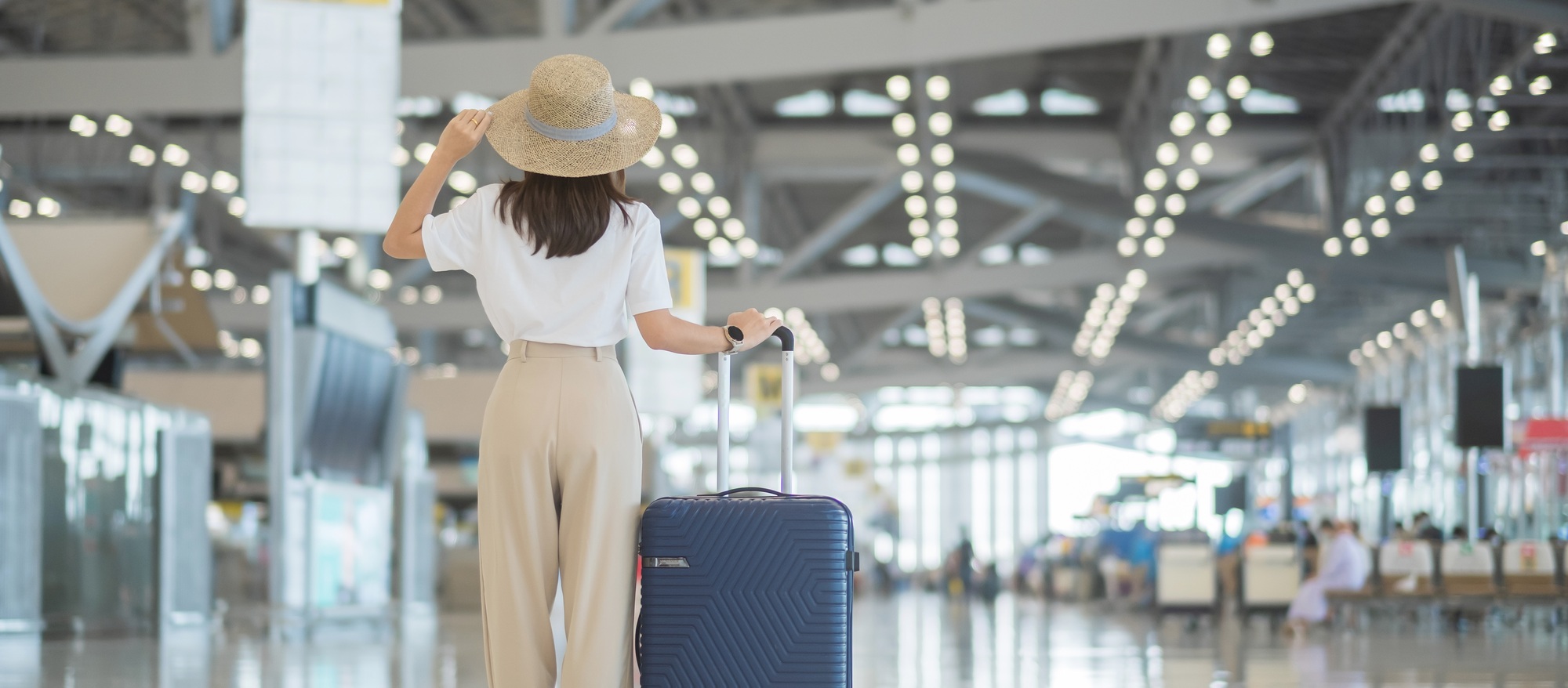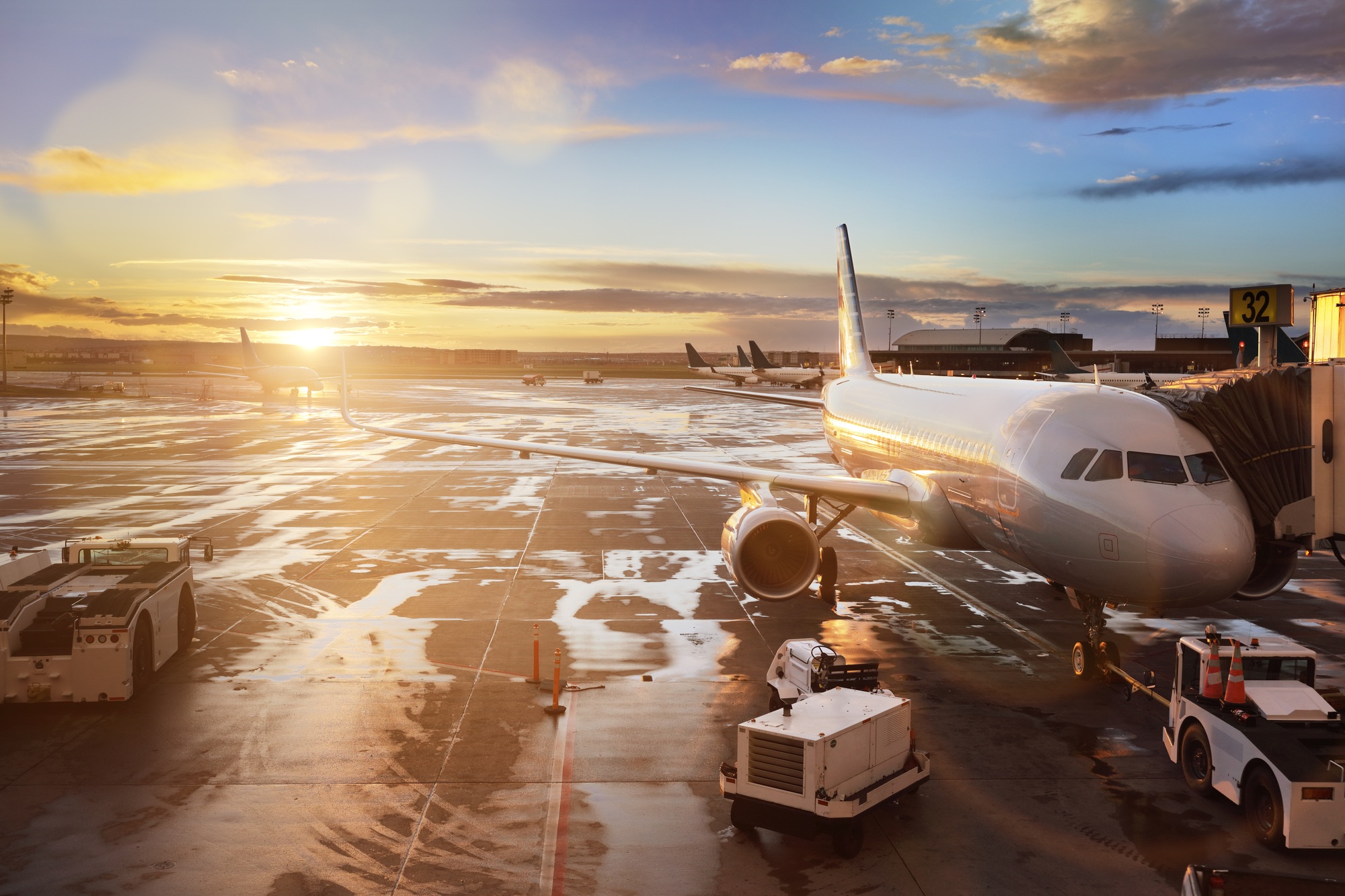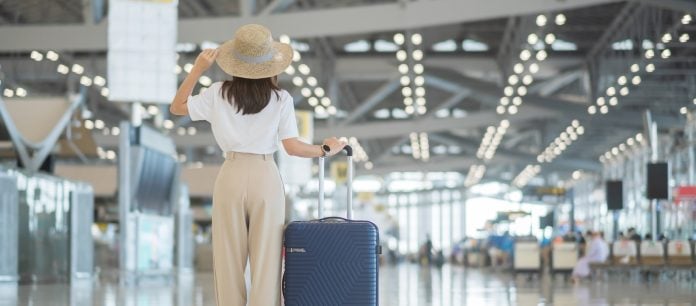Key Takeaways

- Research Your Destination: Understand local customs, regulations, and cultural practices to enhance your business interactions abroad.
- Check Passport and Visa Requirements: Ensure your passport is valid and research any visa requirements for your destination to avoid travel disruptions.
- Purchase Travel Insurance: Protect yourself with comprehensive travel insurance covering emergencies, cancellations, and lost belongings for peace of mind.
- Plan and Share Your Itinerary: Create a detailed travel schedule and share it with your team to ensure support and coordination during your trip.
- Secure Your Valuables: Use crossbody bags and only carry essential items daily to minimize the risk of theft while traveling.
- Familiarize Yourself With Local Transport: Research available public transport options to save time and efficiently navigate your business activities abroad.
Planning your next adventure abroad? International travel can be thrilling but also a bit overwhelming. Whether you’re a seasoned globetrotter or a first-time flyer, having the right tips in your back pocket can make all the difference.
From navigating customs to finding the best local cuisine, knowing what to expect can enhance your experience and help you avoid common pitfalls. You’ll discover that a little preparation goes a long way in ensuring a smooth and enjoyable journey. So grab your passport and let’s dive into some essential international travel tips that’ll have you exploring the world with confidence.
Essential International Travel Tips

Traveling internationally for business requires careful planning. Follow these essential tips to ensure a smooth experience.
- Research your destination
Gather information about local customs, language, and business etiquette. Understanding cultural differences can enhance your interactions and help you make a positive impression.
- Check passport and visa requirements
Verify passport expiration dates and research visa conditions for your destination. Some countries require visas even for short business trips.
- Secure travel insurance
Purchase travel insurance that covers medical emergencies, trip cancellations, and lost belongings. This insurance provides peace of mind while you focus on your small business objectives.
- Plan your itinerary
Create a detailed schedule that includes meetings, flight details, and local transportation. Share your itinerary with your office or team for support during your travels.
- Pack wisely
Organize essentials, such as business attire and necessary electronics. Keep important documents like travel confirmations, tickets, and identification in an easily accessible location.
- Stay connected
Consider purchasing a local SIM card or an international roaming plan. Staying connected ensures effective communication with your team and clients while abroad.
- Manage your finances
Use a travel-friendly credit card to avoid foreign transaction fees. Notify your bank about your travel plans to prevent card issues while in a different country.
- Adapt to local transport
Familiarize yourself with local transport options, such as public transportation or rideshare services. Efficient transport can save time and reduce travel-related stress.
By implementing these essential travel tips, you can reinforce your professional presence and successfully navigate international business endeavors.
Preparing for Your Trip

Preparing for international travel involves careful planning to ensure smooth experiences for you and your small business. Attention to key areas enhances your satisfaction and success abroad.
Researching Your Destination
Research your destination thoroughly to make informed decisions. Look for business opportunities, local networking events, and industry-specific workshops. Explore local regulations that may impact your business activities. Review recent news about the area to stay updated on any changes that affect your visit. Use reputable sources, such as government websites and business forums, to gather valuable insights.
Understanding Local Customs
Understand local customs to show respect and build rapport. Research etiquette around greetings, dining, and gift-giving relevant to your business interactions. Familiarize yourself with any cultural norms that may influence your meetings or negotiations. Practicing these customs fosters positive relationships and enhances your business reputation globally.
Embrace these steps to prepare effectively for international travel, helping you navigate new markets and cultures while representing your small business professionally.
Packing Smart for International Travel

Packing smart for international travel ensures you’re organized and ready for any business opportunity. Consider the following tips to streamline your packing process and stay efficient while representing your small business abroad.
Essential Documents to Carry
Carry necessary documents for international travel. Include your passport, visa (if required), travel insurance, and identification. Keep original documents along with backup copies in both hard and digital formats. For small business owners, include documents related to your business, such as business cards, meeting agendas, and any relevant contracts. Organize everything in a travel-friendly folder for easy access.
Packing Light vs. Packing Right
Focus on packing right rather than packing light. Carry essential items like a first aid kit, prescription medications, and a doctor’s note when necessary. Don’t forget device charging cables and voltage adapters for electronics, which are crucial for staying connected while managing your small business. Select versatile clothing that suits local customs and can be mixed and matched to minimize bulk. Additionally, opt for clothes with inside pockets and zipped closures to enhance security. Avoid loose handbags and open-topped backpacks; these can compromise the safety of your belongings on the road.
Staying Safe While Traveling Abroad

Traveling abroad requires vigilance to ensure your personal safety and the security of your valuables. Follow these key safety tips to protect yourself while running a small business overseas.
Personal Safety Tips
- Know Your Destination: Research your destination’s local customs and potential safety concerns. Use resources like the U.S. Department of State’s Travel website for advisories and embassy contact details.
- Stay Informed and Connected: Enroll in the State Department’s Smart Traveler Enrollment Program (STEP) for updates about safety conditions. Keep in touch with someone back home, sharing your itinerary and checking in regularly.
- Health and Vaccinations: Confirm you’re healthy enough to travel and receive necessary vaccinations. Stay informed about the health risks associated with your destination’s environment.
Managing Your Valuables
- Keep Valuables Secure: Use a crossbody bag or money belt to carry important items like your passport, wallet, and business materials. Always keep them close to your body in crowded areas.
- Limit What You Carry: Bring only what you need for each day. Leave unnecessary credit cards or documents in your hotel safe. This reduces the risk of theft or loss.
- Use Technology Wisely: Store digital copies of important documents in secure cloud storage for quick access if needed. Utilize mobile wallets for secure payments and limit the need to carry cash.
By implementing these tips, you can navigate international travel with confidence while focusing on growing your small business.
Navigating Transportation in Foreign Countries

Navigating transportation in foreign countries becomes crucial when managing a small business abroad. Understanding your options ensures smooth trips and efficient meetings with clients or partners.
Public Transport Options
Before your trip, research the public transportation system at your destination. Familiarize yourself with available options, such as buses, trains, trams, and ferries, to meet your schedule. Utilize online maps and schedules, along with apps like Google Maps or Citymapper, for planning routes effectively. These apps offer real-time updates on services and delays, essential for small business owners needing punctuality during appointments.
Understand the ticketing system in advance to avoid confusion. Look for various ticket types—one-way tickets, day passes, or fare cards—that fit your travel needs. Purchasing multiple journey tickets could lower costs, especially for extended stays.
Renting a Vehicle Abroad
Renting a vehicle might be beneficial for your small business needs, especially in areas with limited public transport. Check rental companies and their policies, such as insurance coverage and age requirements. Carry important documents, like your driver’s license and an international driving permit, if needed.
Research local driving laws, including speed limits and parking regulations, to ensure compliance. Using navigation apps can help you manage unfamiliar routes while minimizing the risk of getting lost or delayed. Booking rental cars in advance often leads to better rates and availability.
Conclusion

Traveling internationally can be a rewarding experience filled with opportunities for personal and professional growth. By following the tips outlined in this article, you can navigate the challenges of international travel with ease.
Preparation is key whether you’re exploring new markets or simply enjoying a vacation. Prioritize safety and stay informed about local customs to enhance your interactions.
Remember to pack wisely and manage your finances effectively to ensure a seamless journey. Embrace the adventure ahead and make the most of every opportunity that comes your way. Safe travels!
Frequently Asked Questions

What should I research before international travel?
Before traveling internationally, research local customs, business etiquette, passport and visa requirements, and safety concerns of your destination. Understanding these factors helps ensure a smooth trip and builds rapport with locals.
How can I stay connected while abroad?
To stay connected during international travel, consider purchasing a local SIM card or using an international roaming plan. This allows you to access your phone and the internet without incurring high roaming fees.
What are essential items to pack for international business travel?
Pack essential documents like passports, visas, travel insurance, and business materials in a travel-friendly folder. Include versatile clothing, necessary medications, and chargers, while focusing on security and efficiency.
How can I ensure my safety while traveling abroad?
To enhance your safety, research local customs and safety tips, enroll in the U.S. Department of State’s Smart Traveler Enrollment Program (STEP), and carry valuables securely. Staying informed about vaccination requirements is also crucial.
What transportation options should I consider in foreign countries?
Research public transportation options like buses, trains, and taxis, and familiarize yourself with local ticketing systems. Alternatively, consider renting a vehicle and use navigation apps to help manage unfamiliar routes.
Image Via Envato



